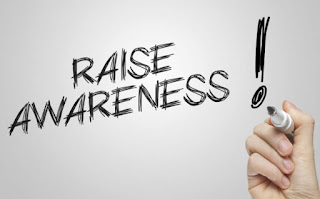My sleep troubles began after I went in to my Urologist for a prescription refill. My physician insisted on performing a DRE.
My world was turned upside down when he said he felt a "suspicious lump" which he wanted to biopsy. This was the event, one of many to come, which caused a significant amount of sleep deprivation.
When I went to the front desk to make an appointment for my biopsy I was told the earliest time available was in a month. They scheduled a second appointment two weeks later to discuss my biopsy results. I drove home in a daze. My world was turned upside down. I had a "suspicious lump" on my prostate which could be prostate cancer.
After my first sleepless night, I realized there's no way I'd survive four weeks of waiting for a biopsy, and two weeks after that to receive my biopsy results. Two things become my top priority in life. Getting a biopsy and biopsy results as quick as possible.
I reasoned that if my cancer was large enough to feel, I might be facing a life threatening disease. I wanted to receive a sand begin treatment yesterday, rather than many weeks from today. A night spent awake worrying increased my resolve to receive a diagnosis and treatment immediately. I felt certain my survival depended on this.
Night after sleepless night I imagined thousands of prostate cancer cells with razor sharp teeth, chomping away at the lining of my prostate looking to create a microscopic hole, so they could escape my prostate in order to kill me.
With that imagery in mind, I was more than willing to leave the Urologist who cared for me for more than two decades in order to find another Urologist who could get me tested, diagnosed, and treated, as soon as possible. I found one in a different city, who could get me tested and have the results in less than three weeks. I canceled my original appointments and scheduled a biopsy in another office.
I lost a lot of sleep in the weeks prior to my biopsy, the week waiting for the results, and countless hours of sleep after I was told I had prostate cancer with a Gleason Score of 4+3=7. This was the beginning of a series of stressful events which resulted in loss of sleep.
Below is a list of events occurring days, weeks, months, and years, after my initial diagnosis which were highly stressful resulting in significant sleep loss.
1. Waiting for my bone scan
2. Waiting for the results of my bone scan
3. Waiting to discuss treatment options after bone scan results came back negative.
4. Time spent researching pros and cons of various treatments.
5. Waiting for appointment at a treatment center
6. Waiting for a pre-surgery exam
7. Waiting for surgery, a minimum of six weeks after a biopsy.
8. Waiting for a post-surgery biopsy
9. Living in diapers waiting to see if urinary control comes back
10. Waiting for the return of erectile functioning
11. Waiting for an appointment for penile rehab
12. Waiting to find an appropriate treatment for ED
13. Waiting for my marriage to return to a familiar place
14. Waiting for PSA testing results every three minths
15. Coping with the fear of reoccurance.
16. Waiting for penile implant surgery
16. Waiting for intense penile implant surgery pain to end
17. Waiting for penile implant activation
This is a partial list of the events in my journey with prostate cancer that resulted in significant sleep deprivation .
Given the inevitably, and harmful effects of sleep deprivation, which most cancer patients (and their caregivers experience). I believe assessing the frequency and duration of sleep deprivation is anessential part of treating all forms of cancer.
Sadly, the issue of sleep deprivation is seldom discussed and goes untreated. Most cancer patients and their caregivers suffer through long bouts of sleep deprivation without any assistance.
If sleep deprivation is a problem for you, meet with your physician to discuss the various ways to treat your sleep deprivation.
Rick Redner and his wife Brenda Redner wrote two award winning books. The first:
provides men and couples with information and support before, during and after prostate surgery.
Their second book was written for couples living with!erectile dysfunction. After living with erectile dysfunction for four years, Rick chose penile implant surgery. The couple share how implant surgery changed their lives and relationship.
The title of their book is:










